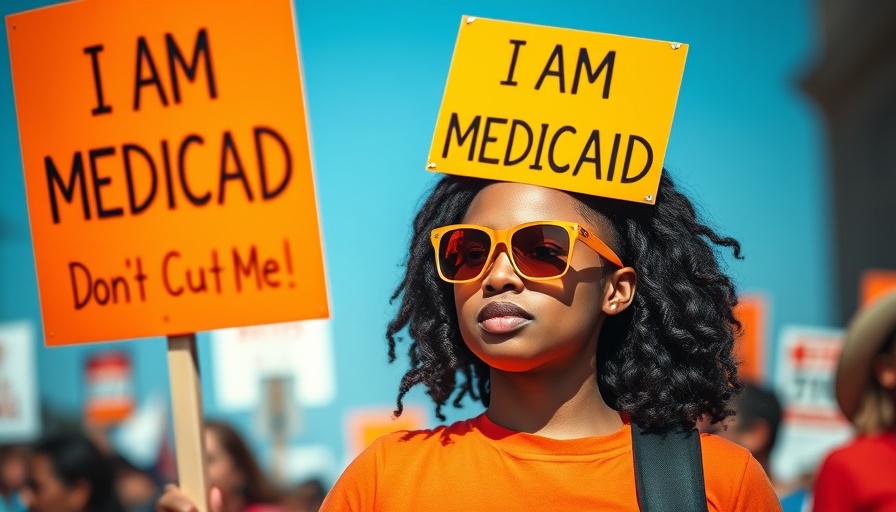
Understanding the Stakes: Medicaid Cuts and Young Adults
Proposed cuts to Medicaid could significantly impact young adults, who are currently relying on the program for essential healthcare services. According to a recent analysis by the Urban Institute, approximately 30% of Americans aged 18 to 24 are covered by Medicaid, playing a crucial role in their access to necessary health services and overall financial stability.
What Would the Cuts Mean?
The recent legislative proposals in Congress could see approximately $700 billion cut from Medicaid funding over ten years. Among the most concerning changes are new work requirements for Medicaid beneficiaries aged 18 to 59 which will necessitate at least 80 hours of work, volunteerism, or education per month. This could disproportionately affect young adults who often face difficulties juggling work and educational commitments while managing healthcare needs.
Additionally, the frequency of eligibility checks will rise from annually to every six months, leading to increased administrative burdens that young adults may find difficult to navigate. These young individuals, already predisposed to financial instability, may find themselves without insurance, as projected by the Congressional Budget Office, which estimates that up to 7.6 million could lose coverage.
The Importance of Medicaid for Young Adults
Younger adults may be healthier on average, but they still require access to vital services, including reproductive and mental healthcare. Disruptions in these areas—especially with the bill’s restrictions on funding organizations like Planned Parenthood—pose significant risks. As these individuals enter adulthood, establishing healthy habits is critical, and access to care is integral to that process.
Potential Consequences on Healthcare Providers
With changes in how states fund Medicaid services, there are concerns about the capacity of providers to deliver care. A freeze on provider tax arrangements could result in fewer providers willing to accept Medicaid, placing additional strains on young adults seeking treatment. As a result, access to essential healthcare services could diminish across the board, impacting not only young adults but all Medicaid recipients.
Conclusion: The Call to Action for Healthcare Access
As conversations around Medicaid reform continue, it’s essential for young adults and their advocates to stay informed and engaged. The implications of these cuts can hinder access to essential health services that are not just beneficial but necessary for their overall quality of life. Advocate for healthcare that supports all ages, ensuring that the concerns of young adults are voiced. The time to act is now!
 Add Row
Add Row  Add
Add 




 Add Row
Add Row  Add
Add 



Write A Comment